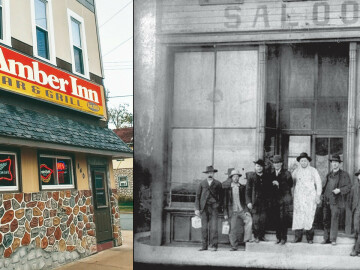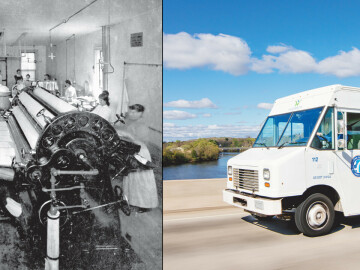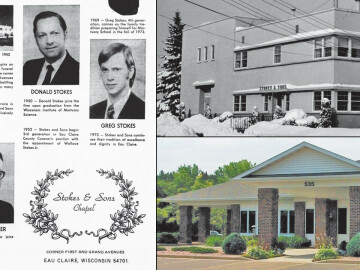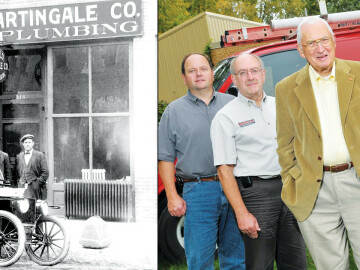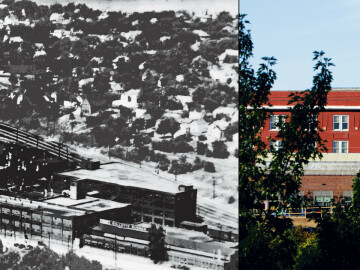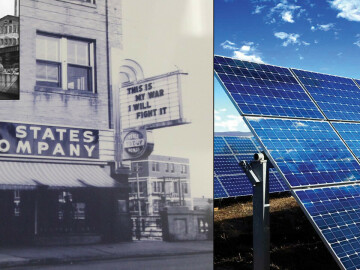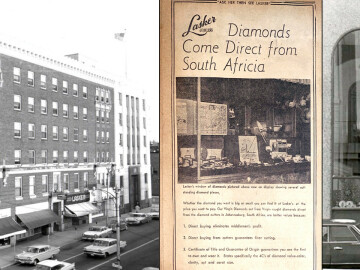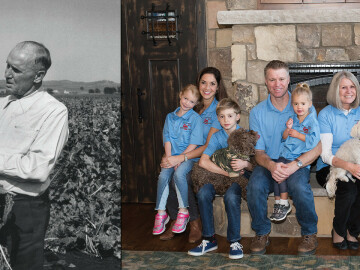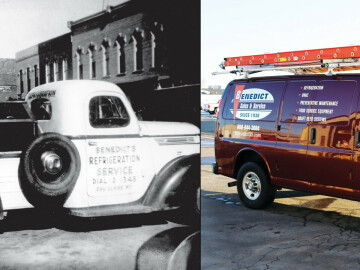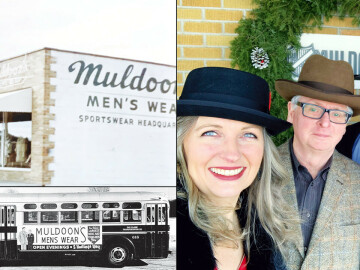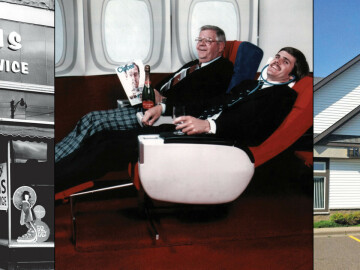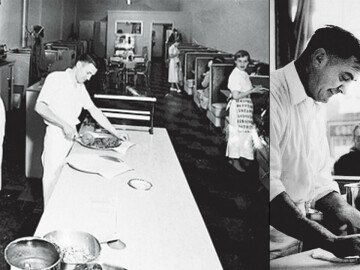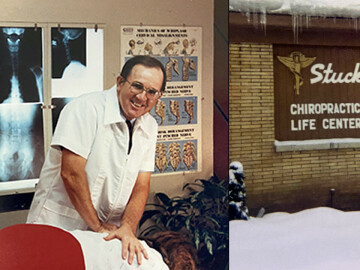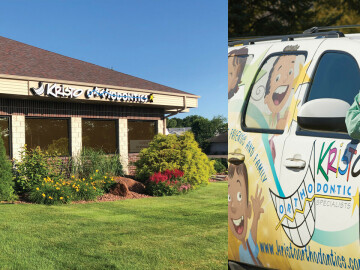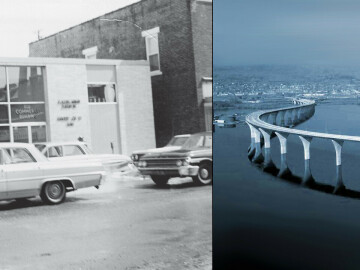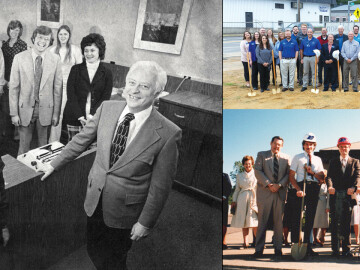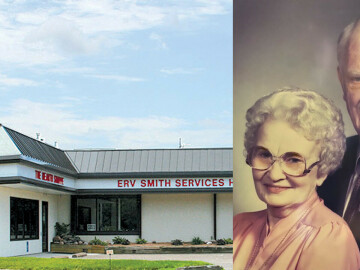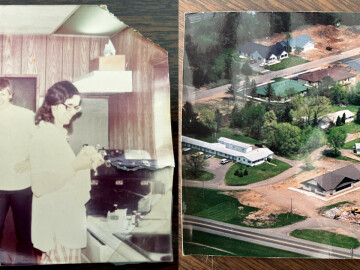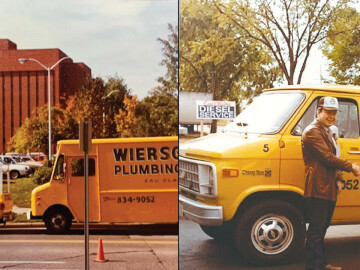Getting up to Date: Author’s Epic Effort to Chronicle Eau Claire History Reaches Its Conclusion
historian Brian Blakeley publishes third volume of city’s story
Tom Giffey, photos by Andrea Paulseth |
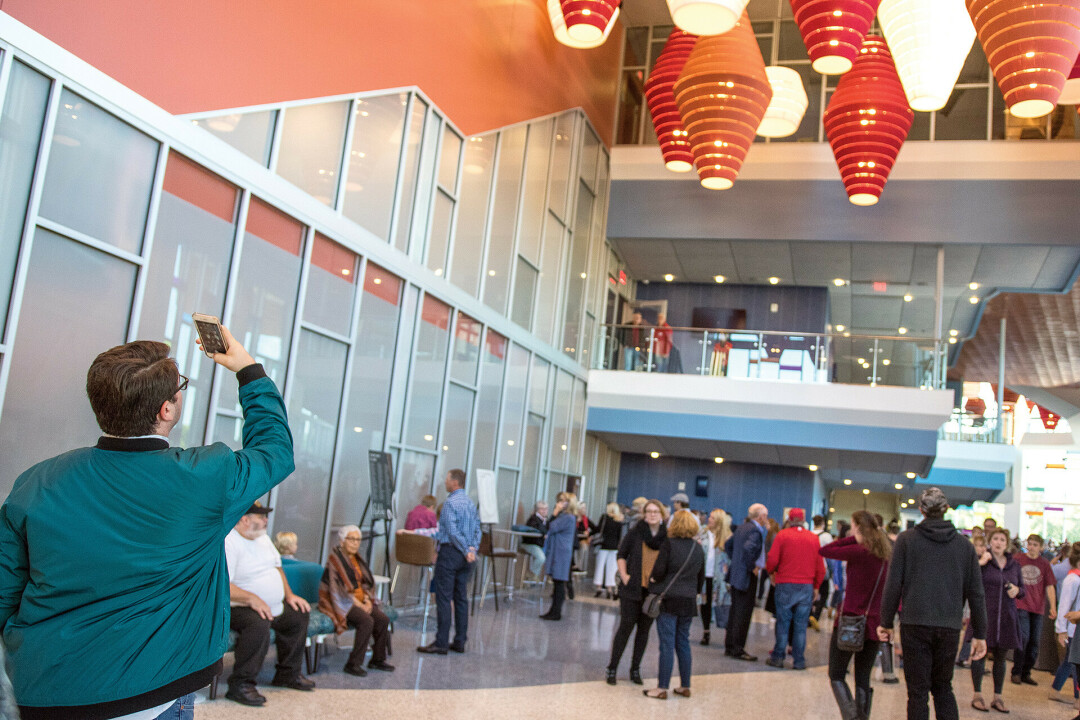
After spending nearly a decade of extensive research and writing that culminated in three volumes totaling more than 1,100 pages, it’s safe to say few people know more about Eau Claire’s history than Brian Blakely.
The Eau Claire native spent his professional career as a history professor at Texas Tech University but retired to the Chippewa Valley two decades ago. Chronicling the history of his hometown has been a passion project for Blakely, who has been aided at every turn by his wife of 58 years, Mary, herself an Eau Claire native.
The first volume of the series, detailing the city’s beginnings and its lumber era, was published in 2018; the following year a volume describing Eau Claire’s manufacturing age was released. Now, Blakely has published the final volume, the largest, most comprehensive, and potentially the most controversial in the series.
“There will be a lot more people who will say, ‘I don’t remember it being that way,’ So I’m expecting more criticism of this book.”
BRIAN BLAKELEY
ON THE REACTIONS HE EXPECTS TO HIS LATEST BOOK ON EAU CLAIRE HISTORY

Perhaps “controversial” is too strong of a word, but Blakely knows that detailing and contextualizing the recent past is not without its perils: After all, the events and trends he recounts occurred in living memory and are thus subject to personal interpretation by opinionated Eau Clairians.
“There will be a lot more people who will say, ‘I don’t remember it being that way,’ ” Blakely said. “So I’m expecting more criticism of this book.”
Unlike the previous two eras, the last chunk of Eau Claire’s history – from roughly 1951 to today – is harder to put a convenient label on. Blakely settled on the subtitle “A Time of Commerce, Service, and Creativity.”
Blakely begins the story in the Eau Claire of his youth in the 1950s, a period that laid the groundwork for many of the trends and challenges the city has faced since, including the decline of the city’s manufacturing economy (while the Uniroyal plant didn’t shut down until 1992, it was on shaky ground as far back as the 1950s, Blakeley writes) and the growth on the community’s outskirts that put pressure on downtown merchants.
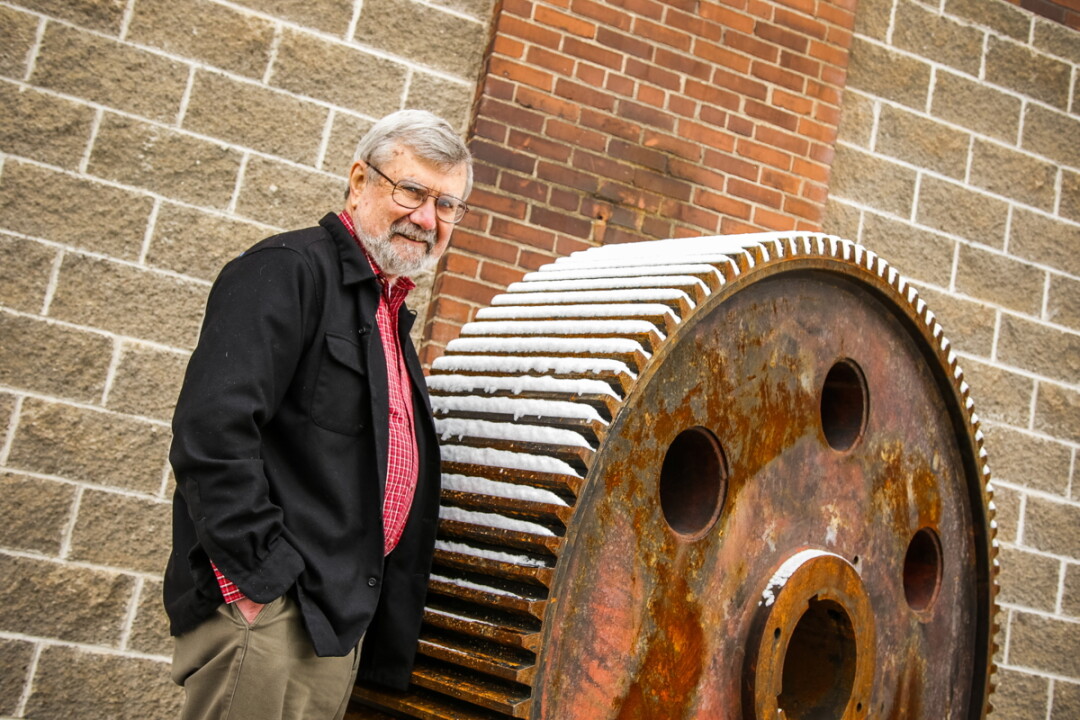
The book also chronicles the political conflicts that have divided the community, from the composition of the City Council to the south side vs. north side struggles to the debate over the Confluence Project of recent years. “I think one of the strengths of Eau Claire is, surprisingly, is it’s always had its divisions and quarrels,” Blakeley said. This dates all the way back to the city’s origin as three distinct lumbering villages which merged to form a city in 1872.
The volume also details the city’s transformation from a blue-collar manufacturing hub to a community with a diversified economy dependent on the medical, government, and educational sectors. Blakely also addresses the much discussed (especially in the pages of this very magazine) emergence of the creative economy as a driver of 21st century Eau Claire. Ultimately, Blakely writes, the book examines the changing meaning of “industrial” in a community like Eau Claire: no longer does it just mean the making of tangible goods. It can also mean the “creative economy,” which Blakely defines as going beyond the region’s music and arts scenes to include recreation, software design, marketing, and other creative endeavors.
However, Blakeley argues, ultimately the health of the creative economy depends on the vitality of the high-paying jobs in other sectors: “Medicine, government, (and) education are established, that’s not going to go away,” he said. “I think that they support things like the music industry rather than the other way around.”
For anyone interested in a deep dive into the story of the city, Blakeley’s latest book, and its three predecessors, are must-reads.
All three volumes of Brian Blakeley’s A History of Eau Claire, Wisconsin are available at The Local Store, 205 N. Dewey St., Eau Claire, and online at thelocalstore.org.







